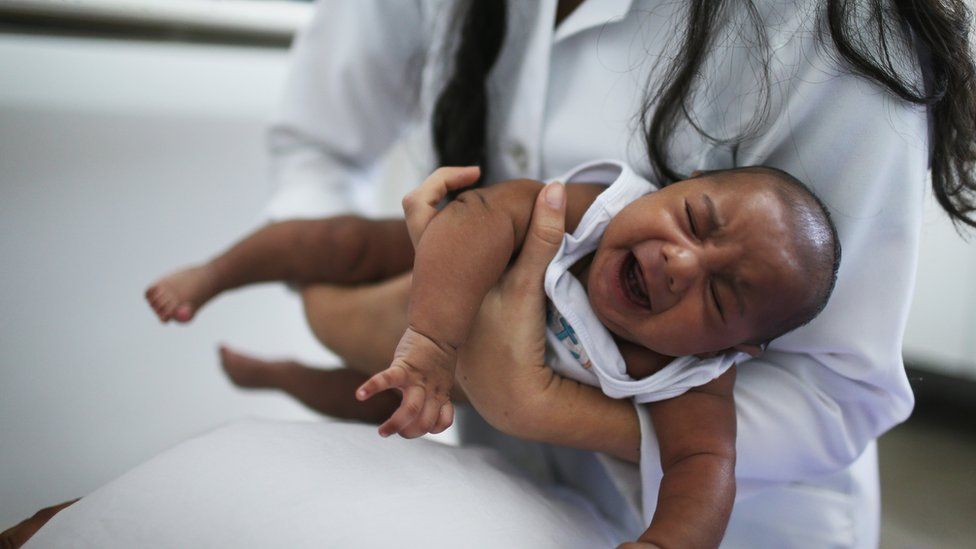Zika and microcephaly link confirmed "in weeks" says WHO
- Published

The World Health Organization (WHO) says it expects to decide within a few weeks if there is a link between the Zika virus and birth defects.
Around 4,000 cases of microcephaly - babies with underdeveloped brains - have been reported in Brazil alone.
A link with Zika has been strongly suspected for some time, but this has not been supported by rigorous scientific studies.
The WHO says large trials of Zika vaccines will take at least 18 months.
Since the first cases of Zika crept up on South America in May last year, there have been far more questions then answers.
The biggest: Is the generally mild Zika virus in fact causing devastating microcephaly in the babies of infected mothers?
"It seems indeed that the link with Zika (and microcephaly) is becoming more and more probable" said Marie-Paule Kieny, assistant director-general of the WHO.
"I think that we need a few more weeks and a few more studies to have this straight," she said.
A new testing kit is being developed to identify infections quickly
While there have been a few cases where fragments of the Zika virus have been found in amniotic fluid and the tissue of foetuses and babies who died soon after delivery, there have not yet been any results from controlled scientific studies.
Many are now underway, and the first is due to report back in the coming weeks.
A group of pregnant women who have tested positive for Zika in Colombia are being closely monitored.
When they start giving birth and providing information about the health of their babies, scientists will able to draw some much needed conclusions.
The WHO is also expecting evidence to confirm a link between Zika and the rare nerve disorder Guillain-Barre, which can cause paralysis and, in extreme cases, be fatal.
Natural defences vs vaccines
The UN agency said a vaccine for Zika will take at least 18 months to produce.
The two most promising possibilities at the moment are being developed by the US National Institutes of Health and the Indian pharmaceutical company Bharat Biotech.
But new diagnostic kits could be available "in weeks not years", according to the WHO.
It also said efforts are currently focused on finding drugs which stop people becoming infected in the first place, rather than on cures.
But as the race continues to find answers and new tools to fight Zika, it may actually end up being people's own natural defences that stop the potentially devastating effects of the virus.
In previous outbreaks of similar viruses such as chikungunya, the WHO says there has been a wave of cases when a new virus enters a population, but then people build up their own immunity to it and cases peter out.
"We don't know if this will be the case with Zika," said Marie-Paule Kieny.
"We have to see how this develops and how easy it will be to test new vaccines when they are ready. It depends how much of the disease is still in communities at that moment."
- Published11 February 2016
- Published10 February 2016